#medici review
Text
She continued, 'After all, there was another cause which would convince your queen and Catherine to pursue a good amity. There was an old acquaintance between your queen's mother and the queen regent, when the former was one of the maids-of-honour of Queen Claude, sister of Renee of France, my own mother-in-law and dear friend to Catherine de Medici herself. They were friendly towards another. There is no reason for Elizabeth and Catherine not to continue that friendship.'
The mention of Anne Boleyn stunned the English ambassador; it had never crossed his mind that the reputation of Elizabeth's mother in France could be used as a diplomatic tool to reinforce Anglo-French relations.
Blood, Fire and Gold: The Story of Elizabeth I & Catherine de Medici, Estelle Paranque
#lots of compelling insights from this book#like that the french court suppressed a book which 'slandered' anne boleyn in 1562#had it been published in the midst of the timeline of marian england#it would not have been considered slander; one imagines.....#estelle paranque#elizabethan#anne boleyn#renee of france#catherine de medici#anyway posting this also bcus some of the HTF reviews have been. annoying#'aha isn't it funny anne had no friends that were women. isn't that telling. aha'#nicholas throckmorton
48 notes
·
View notes
Photo
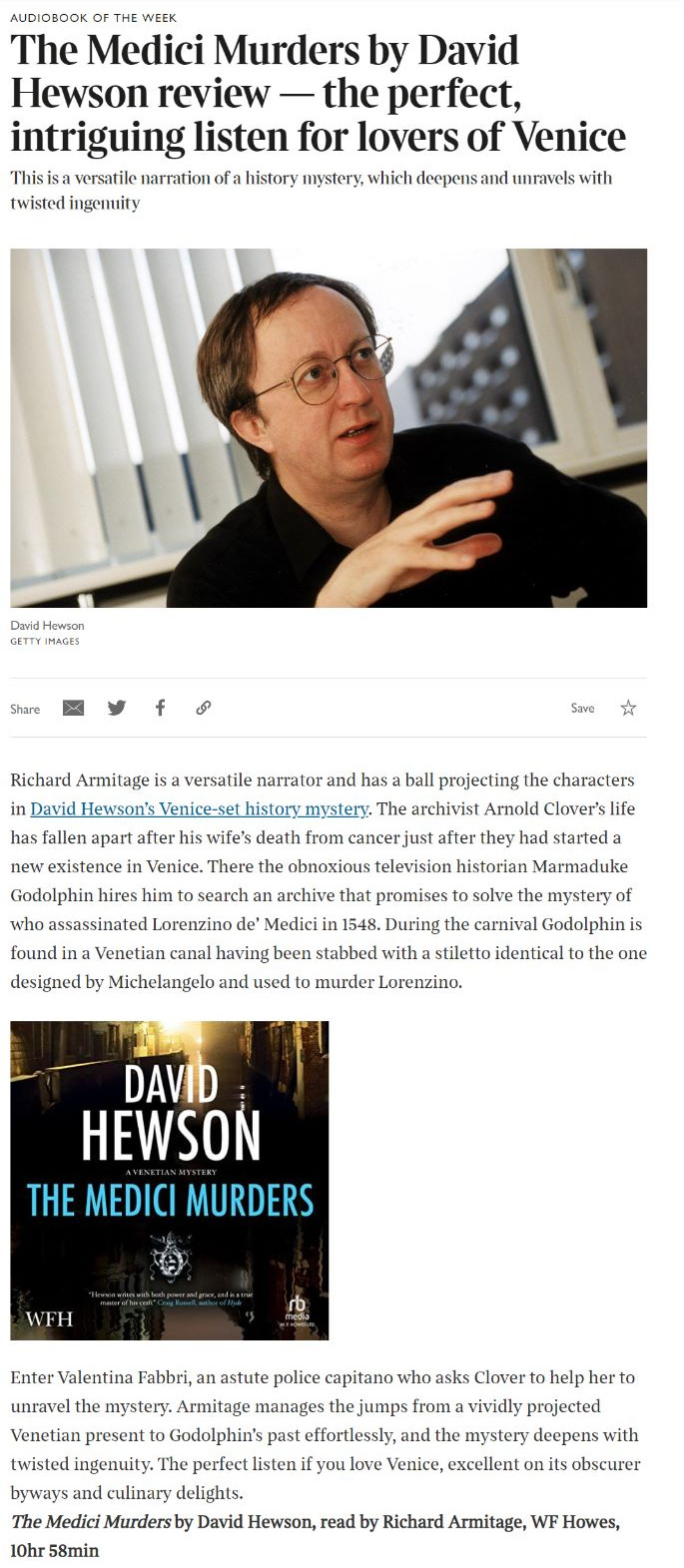
The Medici Murders by David Hewson, narrated by Richard, is the Audiobook of the week by The Times.
#richard armitage#david hewson#the medici murders#new audiobook#audiobook#audiobook of the week#the times#review#news
22 notes
·
View notes
Text
The Maiden of Florence by Katherine Mezzacappa
Publisher : Fairlight Books (18 April 2024)Language : EnglishHardcover : 336 pagesISBN-10 : 1914148509ISBN-13 : 978-1914148507
Book Blurb
Florence, 1584. Rumours are spreading about the virility of a prince marrying into the powerful Medici family. Orphan Giulia is chosen to put an end to the gossip. In return she will keep her life – and start a new one with a dowry and her…
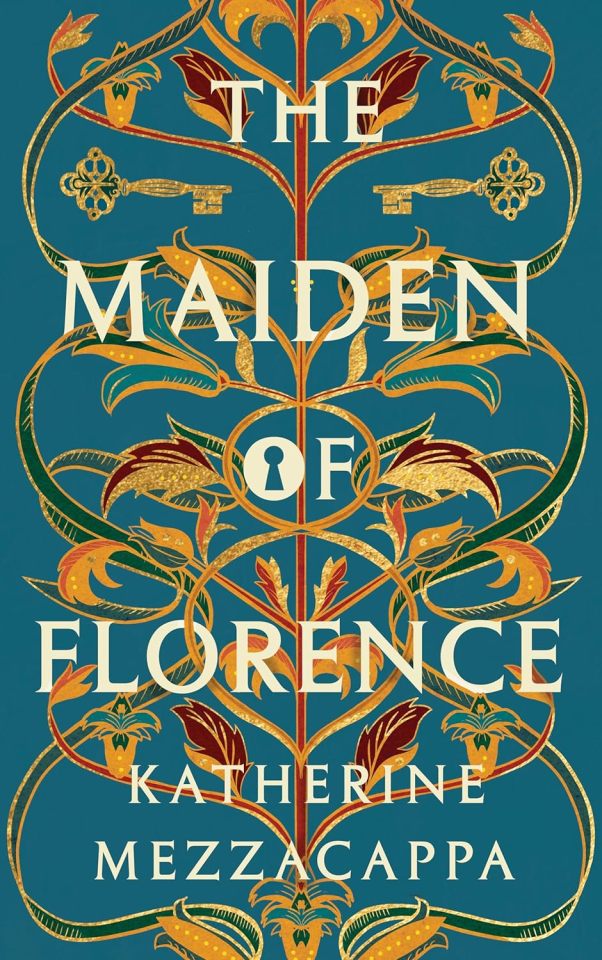
View On WordPress
#Book Blogger#Book Recommendation#Book review#Bookliterati#Fairlight Books#Florence#Guila Albizzi#Historical Fiction#Katherine Mezzacappa#Medici#Romance#Secrets#Sixteenth Century#The Maiden of Florence
0 notes
Text
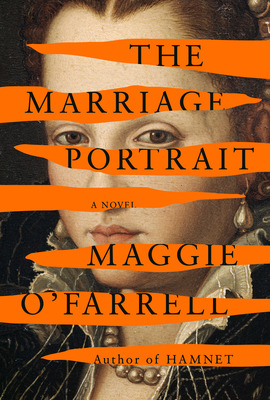
Presenting The Marriage Portrait by Maggie O'Farrell. Reviewed by Read Local for In the Stacks.
https://www.inthestacks.tv/2024/04/read-local-the-marriage-portrait
#in the stacks#reading#books#michelle zaffino#librarian book reviews#video book reviews#guest librarian#writing#mylibrarian#librarians#historical fiction#biography#florence italy#italy#renaissance#paintings#painters#artists#duchess#duke#murder#husbands#wives#lucrezia de medici
1 note
·
View note
Text
‘The Marriage Portrait’ by Maggie O’Farrell
Genre: Adult Fiction – Historical
Published: 2022
Format: Paperback
Rating: ★★★★★
Frankly I couldn’t fault this book. It was engaging to read, and the characters came across as real people which is really important when writing historical fiction. Don’t confuse Lucrezia d’Medici with Lucrezia Borgia, though the two are related – Lucrezia d’Medici (the subject of this novel) was married to the…

View On WordPress
#Book#Book Review#Duchess of Ferrara#Fiction#Historical#History#Italy#Lucrezia d&039;Medici#Lucrezia de Medici#Maggie O&039;Farrell#Novel#Renaissance Italy#Review#The Marriage Portrait
0 notes
Text
Book Review ╽Blood, Fire & Gold: The Story of Elizabeth I & Catherine de Medici
“One might well wonder what thoughts came into Elizabeth’s mind when
she read the letter describing her mother’s death – Elizabeth never forgot
her mother or the lessons her death taught her. Cast out of court after
Anne’s demise, Elizabeth learned that her life would always be in danger…”
Continue reading Untitled
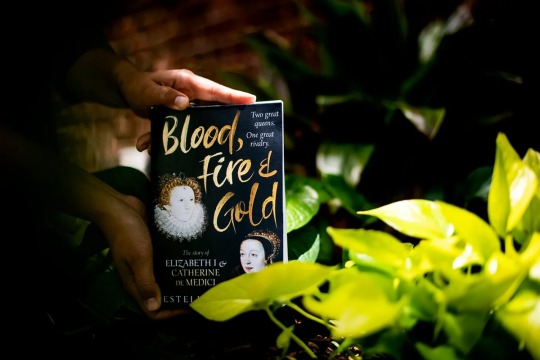
View On WordPress
#biographies#blood fire and gold by estelle paranque#BOOK REVIEWS#BOOKS#Catherine de Medici book review#Comparative analysis of Queen Elizabeth I and Catherine de Medici&039;s reigns#Elizabeth I rivalry#history#Intriguing historical account of Elizabeth I and Catherine de Medici rivalry#Political maneuvering and power struggle in Elizabethan England#Rivalry in history#ROYAL HISTORY
1 note
·
View note
Text
review: The House of Medici: Its Rise and Fall
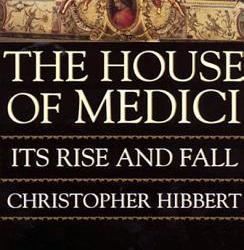
rating: 3 / 5
In some sense, this book is exactly as advertised: a relatively tight history of the Medici family, focusing on the individuals that held power within the government of Florence and Italy more broadly. This is a history of individuals, full of details of their character and relationships. More depth is afforded to those already deemed great, i.e. Cosimo, Lorenzo, Leo, and Clement, but also includes details on more obscure figures, progressing with births and deaths in the family linearly through time. I did find that Catherine was curiously absent, but this book has a very tight focus on Italy.
If this type of individual-centric history sounds interesting to you, you'll probably enjoy this book. I personally found myself wanting more information and context of Florence itself, and of its politics and economy. There is some treatment of these subjects at times - the nature of republican government of Florence and Cosimo's development of soft defacto power within it, the complexity of Italian diplomacy under Lorenzo, the corruption and machinations of the Papacy - but other seemingly relevant context was skipped over entirely. I don't necessarily fault the book for this, since it is a narrowly focused history of the Medici, but I expected more information about the world they shaped and lived in - the development of the renaissance, the workings of the Medici bank, the ultimate decline in economic and cultural activity of Florence and Italy more broadly relative to northern Europe.
Some of the things I'm thinking about after reading this book:
The early Medici took the concepts of Ancient Roman munificence to an extreme, through the funding of public buildings, festivals, scientific research, and works of art, in addition to commission and support of artists, architects, and scientists in a private capacity. Even the latter contributed to the overall cultural and scientific development of Florence, as patronage allowed these individuals to further their work. This reminded me of the expectation of the Roman nobility to donate generously to support their community in order to establish themselves as worthy of glory - public buildings, festivals, and "state" functions in Roman cities were often funded exclusively via private donation at the local level. I wonder to what degree the early Medici were directly aware of and influenced by these ancient ideals with the increasing attention and reverence paid to the classics with the development of the renaissance. An additional dimension to this is the fact that Cosimo and Lorenzo were tasteful and knowledgeable about the work that they choose to enable, and the book is full of anecdotes about them overlooking the personal and moral failings of the individuals they supported in name of enabling their work. From this, one can assume that to an extent their support was self serving - they weren't issuing public donations exclusively for the sake of some idealized public glory or benefit, but because they were personally interested in developing particular kinds of art and ideas.
The Medici really were instrumental in the early development of the Renaissance. A shocking number of the names you associate with the early Renaissance came through Florence and were directly supported by the Medici.
Cosimo and Lorenzo, probably the two most well-known Medici, for the most part did not execute formal power within Florence, and instead co-opted an existing republican system and ruled it through the control of appointments, elections, and cultivating soft power.
0 notes
Note
could you do headcanons about what job Gary (and the greasers) would probably end up in?
|{| Future Job HCs ~ The Greasers + Gary |}|
(i hope thats what you meant)
——————————
Johnny Vincent: || i feel like he would be secretly really good at cooking, like Hell’s Kitchen worthy cooking skills. So if he ain’t a mechanic or something he’s a master fuckin chef.
‘Peanut’ Romano: || He would be a Physical Therapist, he is all for the idea of helping others rehabilitate or even become better at staying active to help them out in a job that requires as such.
Norton Williams: || He is a construction worker, he has the build for it and everything. Besides, he loves his hammer remember?🤷♀️
Lefty Mancini: || He is a mixologist, he strikes me for the type to be hella good at making drinks.
Lucky De Luca: || He is a comedian. He makes jokes about this and that, tries not to get offensive or anything, pretty cool.
Hal Esposito: || He would be a biker, he would have his own badass motorcycle gang and names printed onto leather jackets and vests and shit, and listen to ZZTop or something. 🦅🦅🦅🦅🇺🇸🇺🇸🇺🇸🇺🇸🏍🏍🏍🚬🚬🚬🚬🍻🍻🍻🍻🍻
Lola Lombardi: || She is one of those cool hairstylists that you always gossip with and tell each other their drama and talk about the latest events. Say someone was trying to start shit with you? She will take your side all the way.
Ricky Pucino: || He is a professional drummer. (He can kick ass on that drum pedal)
Vance Medici: || bus driver 😛 jkjkjk He would be a luxury clothing designer and make (leather stuff ofc) $8000 sandals and jackets or something. (people buy them dw)👍
——————————
Gary Smith: || He would be a critic. Any type of critic, from food to clothing stores, he will leave extremely unfair reviews, and if someone he doesn’t like works at one of the places? He is leaving an even worse review on purpose. 💀
——————————
(these are also very half-assed but it took EONS to make these. Even though the majority of these people would become mechanics or car racers, I didn’t want to be basic. (that basic anyway) It’s alright though. {i was p high in the making of these I apologize lmao}))))))
#bully scholarship edition#bully se#bully#gary smith#johnny vincent#lola lombardi#peanut romano#hal esposito#lefty mancini#vance medici#norton williams#ricky pucino#lucky de luca#headcanons
31 notes
·
View notes
Text
January Book Reviews: The Dragon Waiting by John M Ford
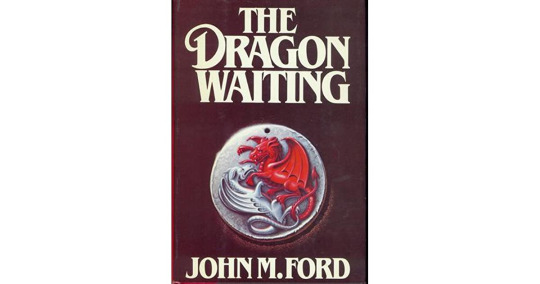
Recommended highly by, I think, someone on tordotcom. Finally managed to get my hands on a copy. In an alternate Europe where Christianity never rose to power and Byzantium never fell, Constantinople maneuvers against Italy and England. Caught in these games of kings are an exiled nobleman, a cunning wizard, and a female physician.
This was a very clever book, but not an entirely likeable one. It is very well executed, and it won the World Fantasy Award when it was originally published. It also reminds me strongly of Dorothy Dunnett at her most opaque (derogatory). Well, not entirely derogatory-- Dunnett is after all a master at writing historical fiction, no matter how opaque her writing. This was also a book that was secretly about Richard Three. I don't know what they put in the water that makes authors obsessed with Richard Three. It seems to have also gotten Jo Walton and Josephine Tey. Probably it's Shakespeare.
I'm not entirely sure that the premise entirely holds together when it comes down to it. I don't think you could have a recognizable medieval Europe without Christianity, let alone England and Medicis and Savonarola and the dozens and dozens of other historical easter eggs.
Very clever, if perhaps a bit too clever.
23 notes
·
View notes
Note
hey so I know perception of and regard for various standards of beauty varied drastically over time and also by gender but I have seen 4 or 5 different English History "documentaries" (a napoleonic, a romano-british, 2 or 3 tudor) in which passing mention was made of a king/general/potential groom is described as fat and it's framed as unambiguously negative; do you have some thoughts or maybe sources about historical perspectives on this particular element of a person's appearance?
Okay, I KNEW that I had written an answer about this a while ago, in response to a weird and dickish anon, and surprisingly, I was actually able to find it (I guess someone sacrificed a black rooster to the Tumblr search gods at midnight, or something). Anyway, here is part of what I wrote last time:
For much of history, the “fat” figure was regarded and socially conceptualized quite differently. Georges Vigarello has written The Metamorphoses of Fat: A History of Obesity, which traced how discriminatory attitudes toward obesity, the correlation of obesity with weak moral character or other flaws, and the modern association of beauty with slenderness developed in the 17th and particularly the 18th centuries, assuming final form for the demanded body image for both genders around the 1920s. Medieval monks wrote tracts about and had some concern with the deadly sin of gluttony, but it was not understood in the same way as modern anti-obesity polemics, and there was not a correlation of fatness with morality. Katherine Harvey at the Centre for Medical Humanities has reviewed and summarized Vigarello’s book, while pointing out some of its limitations and flaws in methodology, especially from a medieval perspective. While there is some truth in the fact that full-figured bodies were admired as a sign of luxury and a sign that the person did not have to struggle to eat, we also cannot simplistically assume that everyone in the Middle Ages was close to starving and that this dictated their response to and appreciation of this form.
Fat people existed, because – surprise! – they are people, and they wielded considerable authority and respect in their milieu. Probably the best example is Louis VI of France (r. 1108–37), often known as “Louis the Fat,” but also as “Louis the Fighter,” who is regarded as the first strong king in medieval France since Charlemagne, commanded considerable respect from his peers and vassals, and was the subject of one of our first comprehensive royal biographies: The Deeds of Louis the Fat or Gesta Ludovici Grossi written by his loyal advisor, Abbot Suger of Saint-Denis. You’ll note that the use of that title does not implicitly exclude, shame, or denigrate the fact that this was Louis’ commonplace nickname. Louis’ fatness, while it eventually caused tactical problems for him in leading armies, was not connected to a judgment on his fitness as a king, and again demonstrates that our own attitudes to obesity have been socially constructed by the same process as our opinions (frankly, often equally problematic) on other things, and are open to question and revision.
Furthermore, the idea that we should ban fat people from Renaissance Faires, aside from being offensive, is baffling because… have you seen Renaissance art? Particularly that of Peter Paul Rubens, whose propensity for full-figured women depicted as desirable and sexual gave rise to the description “Rubenesque.” You can see many of his portraits on Wikipedia, or read a review of his usage of the female nude, or consider the gender politics and poetics of his depictions of Catherine de Medici, Queen of France.
Anyway, I think that about covers it. The important thing I want to highlight, as mentioned in the first paragraph, is that I sometimes see the argument that premodern people respected fatness as a sign that someone wasn't on the brink of starving to death (as we incorrectly assume that everyone before the 20th century was constantly doing!) While there is perhaps some limited amount of truth to that, there's also the fact that our present obsession with super-slim, super-"sexy!" bodies is a direct result of social/mass media, heavily airbrushed advertisements, modern beauty techniques/standards, and everything else that has made it possible for everyone around the world to have that image universally (and unrealistically) held up as The Only Way To Be Beautiful. Premodern bodies were... just bodies, ordinary bodies, the way people have them now! And since there was neither a widely available mechanism nor a particular social expectation for them to look a particular way (besides, you need to have a strong/stocky/muscular form to do manual labor and/or physical work, and that was ALSO admired!), there are plenty of instances of heavier people pictured as socially and sexually desirable, and it was not a "bad thing" in the way that modern fatphobia frames it.
The Vigarello source is particularly useful in describing the evolution of the slender body as the sole preferred Western beauty standard, but as noted, that process was not complete until the early 20th century, and first gained steam during the 18th century (as slenderness became associated with vigorous health, exercise, personal moral fiber/self control, and other Enlightenment values). So anything before that is not stigmatized in the same way, and to do so is definitely an imposition of modern beliefs/prejudices.
55 notes
·
View notes
Text
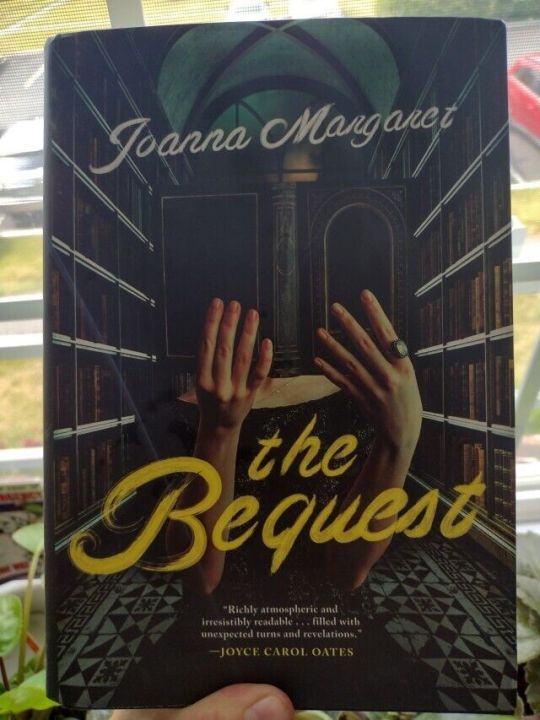
Book review: The Bequest by Joanna Margaret
This book is about a graduate student named Isabel from the US who goes to Scotland to pursue her PhD at St. Andrew's. Upon arriving, she finds out that the famous historian who was to be her advisor died by falling off a cliff - later it is ruled a suicide. She gets a new advisor and starts researching her topic on the women of Catherine de' Medici's court, while trying to shrug off the seemingly nonchalant attitude of the other students and faculty towards her advisor's death. She has one friend there that she went to school with in the US, a slightly older student named Rose.
Rose begins to talk about her dissertation topic, the Falcone family and their influence on European politics, with Isabel. Isabel discovers that there is some overlap between their topics. One day, Rose takes Isabel out for a trip and lavishes her with expensive dinners and a dress. She also mentions to Isabel that she has gotten into some trouble and may need her help, but doesn't go into specifics. Shortly after she gives Isabel another gift, a vase that she tells her not to open until the 25th anniversary of their friendship.
Rose goes missing not long after that. A note is found, and the police assume she killed herself. But Isabel opens the vase Rose gave her, and finds a recording saying that people looking for a lost emerald owned by the Falcones have captured her, and she needs Isabel's help to find the emerald or they will both be killed. Isabel takes over Rose's dissertation topic, and goes to Genoa, Florence, and Paris to research all she can about the Falcones.
........................................................................................................................
Reading the synopsis I thought this book had potential (I love Catherine de' Medici) but it was quite bad. There was a lot of stuff that irritated me. Isabel was on anti-depressants and decided to flush them and stop taking them cold-turkey during one of the most stressful times of her life. She suffers no consequences from this other than bad headaches, which is not realistic. At one point the emerald is thrown on the floor and is shattered, and if it was really as pure and perfect as described, it wouldn't have. Isabel also ignores so many blatant signs of narcissism in Rose and warning signs in other people that its frustrating. Some scenes also just don't make sense. Like one of the living Falcones thought Isabel tried to steal documents from their archive, so he attempts to rape her. But then later he emails her promising leads to other documents? Also, the sister of said attempted rapist Falcone invited Isabel to her tower bedroom in Genoa to try on a corset, and Isabel just did? Then Isabel, after stripping in from of them to put on the corset, went back to the library to do research in the corset? Because that's something historians do all the time. This book was just bizarre.
14 notes
·
View notes
Text
Doctor Who: The Massacre
Season Three ✨ 1965 - 1966 ✨
Doctor: 1st
Story Length: 4 Episodes
Companions: Steven and Dodo
Main Setting: Paris, 20-24th of August 1572
Main Enemy: Catherine de Medici
Creatures: n/a
My Personal Rating: /10
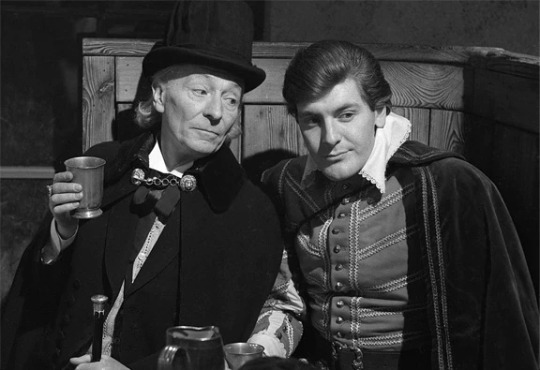
All four episodes are missing from this story. Here is the wiki page:
(Please don't take these too seriously, I am not a real life reviewer, just someone who likes the show)
2 notes
·
View notes
Text
Ritual of Fire (Cesar Aldo Book 3) by D.V Bishop
Publisher : Pan; Main Market edition (15 Feb. 2024)Language : EnglishPaperback : 400 pagesISBN-10 : 1529096502ISBN-13 : 978-1529096507
Book Blurb
Florence. Summer, 1538.
A night patrol finds a rich merchant hanged and set ablaze in the city’s main piazza. More than mere murder, this killing is intended to put the fear of God into Florence. Forty years earlier on this date,…
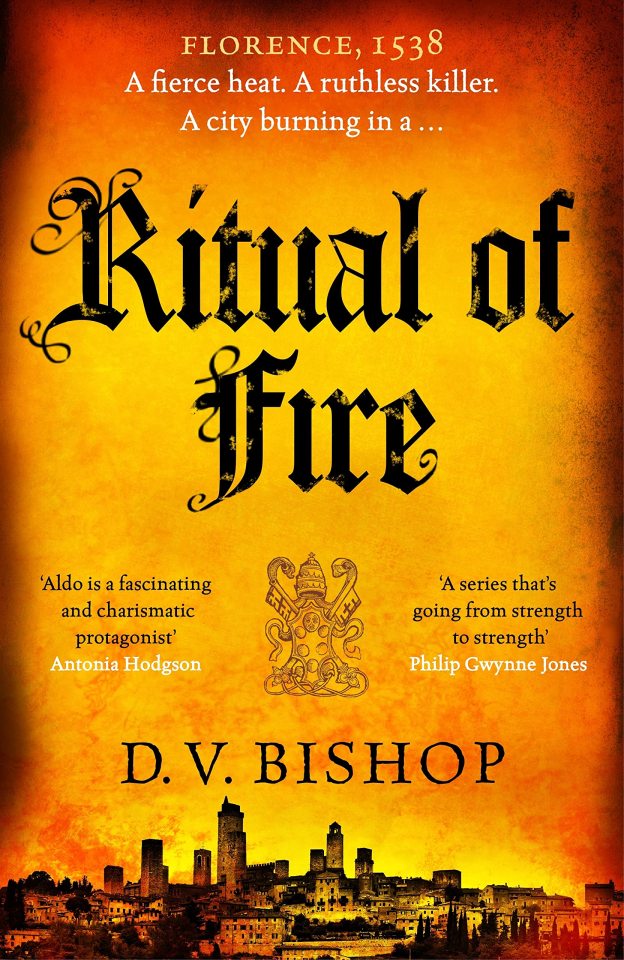
View On WordPress
#Book Blogger#Book Recommendation#Book review#Bookliterati#Cesare Aldo#Cosimo de Medici#Crime#D V Bishop#Florence#Historical Fiction#History#Murder#Pan Macmillan#Ritual of Fire#Savonarola#Suspense#thriller
0 notes
Text


Fool's Gold
by: markantonys | word count : 13573 | AO3 | chapters: 3/3 | rating : mature
Summary:
Francesco starts dating Lorenzo purely out of a desire to use him to dig up dirt on the Medici bank. But he doesn't count on his heart getting involved.
Tags :
Alternate Universe - Modern Setting | Fluff | Humor | Angst with a Happy Ending
Review : 💜 💜 💜 💜 💜
Oh but the happiness that gave me after reading this fic. It has everything I love and it's still a great fic. Even though it's a modern times au, the characters are very much in character and if you've seen the series you won't find it too strange, that they are in a modern world. Lorenzo is the same cuty in love, and Francesco is the same mean bisexual as always. They are very cute in their characterisation and the people around them are also magnificently well written. I loved their romance and how it started, it has awkward moments between them that are pure entertainment juice. So for this ship that is so scarce in works this is ones of the best I've come in contact with. I highly recommend it.
#fool’s gold#I don’t know if they have a ship name franzo or lorenco#modern au#fluff#humor#angst with a happy ending#lorenzo de medici#francesco pazzi#francesco de pazzi#lorenzo medici#lorenzo x francesco#francesco x lorenzo#medici the magnificent#medici#ao3#ao3 fic#ao3 lorenzo x francesco#ao3 francesco x lorenzo#medici the magnificent fic
45 notes
·
View notes
Text
Book Review - ‘The Marriage Portrait’ by Maggie O’Farrell
Frankly I couldn’t fault this book. It was engaging to read, and the characters came across as real people which is really important when writing historical fiction. Don’t confuse Lucrezia d’Medici with Lucrezia Borgia, though the two are related – Lucrezia d’Medici (the subject of this novel) was married to the grandson of Lucrezia Borgia (Alfonso d’Este). It’s strange to think that while this…
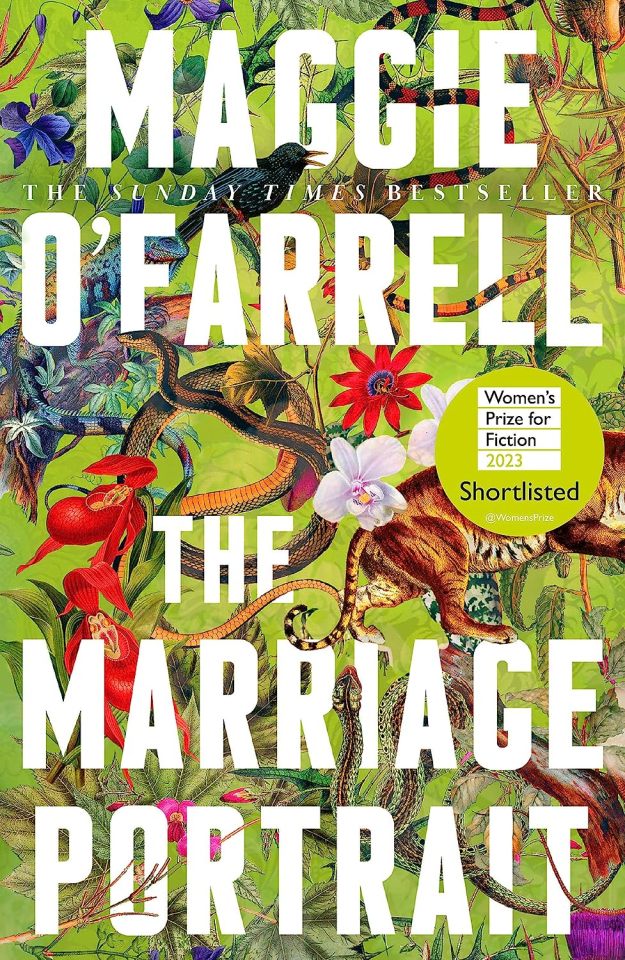
View On WordPress
#16th Century#Alfonso Duke of Ferrara#Book#Book Review#Ferrara#Fiction#Florence#Italy#Lucrezia D&039;Medici#Lucrezia de Medici#Lucrezia Duchess of Ferrara#Maggie O&039;Farrell#Marriage Portrait#Novel#Renaissance#Renaissance Italy#Review#The Marriage Portrait
0 notes
Text
2023 genre bingo update #2

It's finally time for my second update on this challenge. Here is the link to the first one. Since then I have completed three more prompts. I don't know if I have mentioned it before, but since I am doing so many challenges, I used some books that can fit prompts of different challenges for both. I have absolutely no plans for the prompts I haven't done yet, I have an horror novel on my tbr shelf, but after that I have no plans.
The Tower Of Swallows by Andrzej Sapkowski for the fantasy prompt:
This is the sixth book of the witcher series, and I didn't enjoy my time with it. It was slow as hell, and it totally killed the hype I had from the previous novel. I will finish the series of course, but this book will not end up in my favourites, that's all. Thankfully listening to the audiobook helped a lot, or I would have ended up in a reading slump.
The Marriage Portrait by Maggie O'Farrell for the historical fiction prompt:
It might sound weird coming from an history major, but I don't really tend to gravitate towards historical fiction books. This author is making me change my mind on the genre, I fell in love with her writing last year, and this year I confirmed her historical fictions are amazing, and I would absolutely read more of them. This one in particular was inspired by the life and death of Lucrezia De Medici dutchess of Ferrara, who died one year after her marriage with Alfonso D'Este. I like the way this author takes facts that are very little documented, and tries to imagine how things could have gone.
Who Goes There? by John W. Campbell for the sci-fi prompt:
This classic sci-fi/horror was one of the biggest disappointments of the year so far. I hated my reading experience, because from start to finish of this novella I didn't care at all about the characters or what was happening, although it uses a trope I tend to love. In fact stories with a small set of characters that are somehow isolated and start to be attacked/suspect one another is one of my favourite tropes. This book just didn't work for me at all.
All individual book reviews are linked in the titles above as usual.
#bookblr#booklr#book#books#book recs#book reviews#book recommenations#reading challenge#reading challenge update#2023 genre bingo#studyblr w/ knives reading challenge#knife gang#reading#mine#the---hermit
6 notes
·
View notes